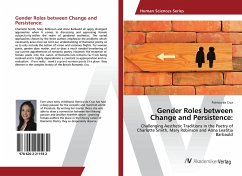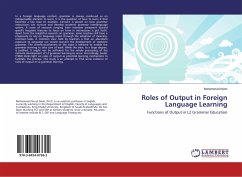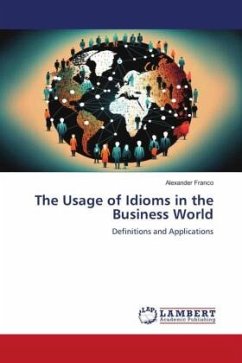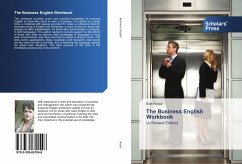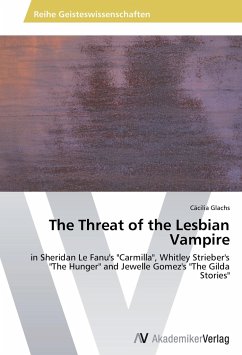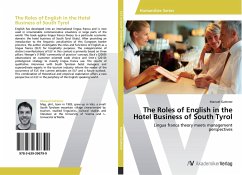
The Roles of English in the Hotel Business of South Tyrol
Lingua franca theory meets management perspectives
Versandkostenfrei!
Versandfertig in 6-10 Tagen
22,99 €
inkl. MwSt.

PAYBACK Punkte
11 °P sammeln!
English has developed into an international lingua franca and is now used in innumerable communicative situations in large parts of the world. This book applies lingua franca theory to a particular economic domain: the hotel business of South Tyrol (Italy). After providing an introduction to the linguistic peculiarities of this European border province, the author investigates the roles and functions of English as a lingua franca (ELF) for hospitality purposes. The categorization of distinct manifestations of ELF in this context is primarily based on three pillars: Wenger s (1998) community of...
English has developed into an international lingua franca and is now used in innumerable communicative situations in large parts of the world. This book applies lingua franca theory to a particular economic domain: the hotel business of South Tyrol (Italy). After providing an introduction to the linguistic peculiarities of this European border province, the author investigates the roles and functions of English as a lingua franca (ELF) for hospitality purposes. The categorization of distinct manifestations of ELF in this context is primarily based on three pillars: Wenger s (1998) community of practice concept, Bäck s (2009) observations on customer oriented code choice and Smit s (2010) prototypical strategy to classify lingua franca use. The results of qualitative interviews with South Tyrolean hotel managers and superordinate experts in the tourism industry inform the reader of the occurrence of ELF, the current attitudes on ELF and a future outlook. This combination of theoretical and empirical exploration offers a new perspective on ELF in the periphery of the English speaking world.



